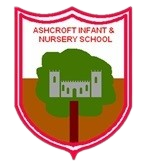Implementation
In Key Stage One we meet the requirements of the national curriculum through skills focused whole class teaching. We focus closely on age related expectations ensuring that children have all they need to progress on to the next year group or key stage.
We aim to plan coherently, including in our planning, all aspects of the English curriculum. We do not teach skills in isolation, such as grammar, spelling and punctuation – we include them in a well thought out unit of work that enables children to make links, apply taught skills in a context and see a purpose to their work.
We take our time and do not rush through content. Therefore we give our pupils many opportunities to apply their learning in different contexts. We know that learning has to become part of a child’s long term memory for it to be effective, consequently we know that intelligent repetition and skilled teaching is the key for this to be the case.
We use high quality texts as a starting point for all our units of work. Whole class reading starts our units with a close focus on modelled reading strategies, reading skills and vocabulary. We know that quality texts inspire and motivate children and we encourage exposing children to a range of different texts. In Key Stage One, we teach reading skills using the Literacy Sheds VIPERS. This common language and child friendly approach enables teachers to teach reading skills explicitly as well as giving children strategies for understanding texts and improving comprehension skills.
We also prioritise accurate decoding and fluency and hear our children read in weekly guided and 1-1 reading sessions. We encourage reading at home through rainbow readers and are lucky to have many volunteers for reading in school.
We give children many opportunities to relax with a good book – every classroom has a reading area and weekly visits to the library are timetabled across the school. We know that good readers are good writers and our children are read to daily. We encourage them to ‘magpie’ words and phrases into their own writing and aim for our classrooms to be vocabulary rich environments.
Our aim is to create independent writers who can apply the skills they have been taught to have a positive effect on a reader. It is vital then that children see their teachers write daily and know that effective writing takes time and effort. We frequently model the writing and editing process in front of our classes and encourage pupil input through shared and guided writing. By teaching this way, we can scaffold and support our children’s writing and aim to make our expectations clear.
We encourage a close focus on skills and age group expectations through termly moderations both internal and with other local schools. We are reflective and use this process to identify gaps in our own teaching and standardise our judgements.
